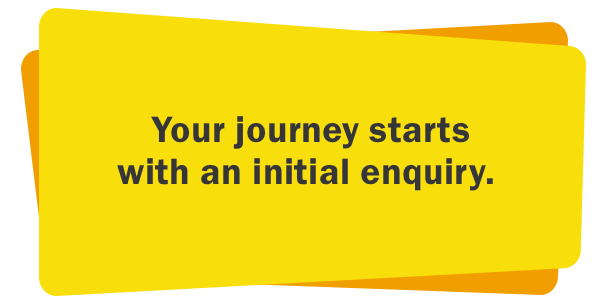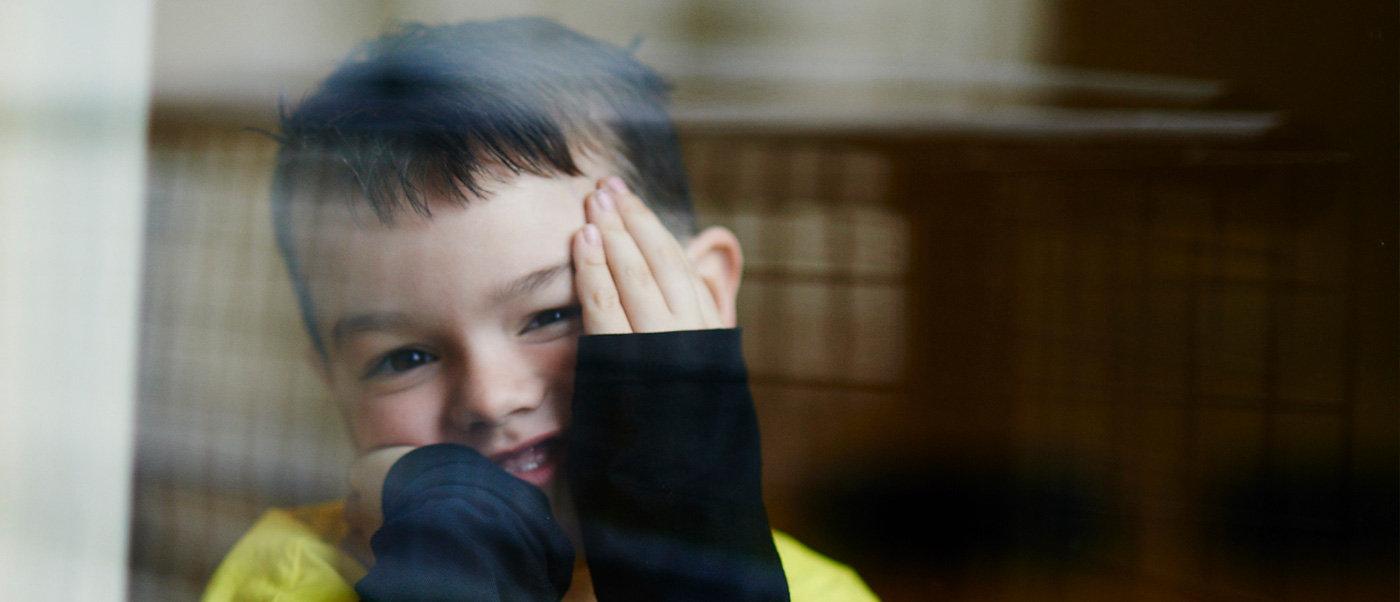This website uses cookies so that we can provide you with the best user experience possible. Cookie information is stored in your browser and performs functions such as recognising you when you return to our website and helping our team to understand which sections of the website you find most interesting and useful.
Moving into care can be unsettling, upsetting and confusing for the children involved
Because of this, and the need to make their protection our highest priority, there is a formal process that must be followed for all potential foster carers.
This includes an in-depth assessment process which allows us to get to know you and you can get to know us.
Our fostering team is highly experienced in supporting potential foster carers through the whole process and will guide you through every step.
We aim to assess and prepare our foster carers for their first placement in 4 to 6 months.

The Foster care assessment journey
Click on the below steps to learn more…
Step 1 - Enquiry
Your journey starts with an initial enquiry.
You can fill out the enquiry form, call our dedicated fostering team on 0800 634 5300 or email us at fostering@canw.org.uk.
Step 2 - Information Pack
Once we’ve received your initial enquiry we will send you an information pack containing all you need to know about fostering with CANW.
Step 3 - Visit from Fostering Team
The next step is an initial visit from a member of our fostering team. This meeting is an opportunity for you to ask questions and discuss next steps in the process.
Step 4 - Formal Application
If you would like to progress your application further, we will ask you to complete an application form after which the formal assessment and training process can begin.
Step 5 - Assessment with Supervising Social Worker
The formal part of the process involves a full assessment by a Supervising Social Worker who will produce a report called ‘Form F’, alongside training and the statutory checks required by law for anyone wishing to work with children.
- Form F covers your background, relationships and partnerships, your support network, your family situation including family members living at home and elsewhere and your financial situation. The report will also include a description of your family life and experiences. All of this information enables the team to identify any training or support needs you may have to become a foster carer.
- You will attend a 2 day Skills to Foster training course that covers many aspects of what it means to be a foster carer and what will be required of you. It also provides an opportunity for you to meet existing foster carers and members of the Fostering team to ask questions.
- The statutory checks that CANW will request include:
- Enhanced Disclosure Barring Service (DBS) check
- Local Authority Checks
- Employer references including any previous employment that has involved working with children or vulnerable adults
- Personal references, referees will ideally need to have known you for at least 5 years and will be visited by your Social Worker
- School reports on children within the household
- Medical reports from your GP
- Overseas checks where applicants have lived or worked abroad
- Ex-partners (except in exceptional circumstances)
- Grown-up children and children from a previous relationship
Step 6 - Fostering Panel
Once the formal assessment process is complete, you will be able to read the report and discuss it with your social worker and a date will be made for you to meet with the Fostering Panel.
The panel consists of independent professionals and staff from CANW who will discuss your application with you and your social worker and give you the opportunity to ask questions.

What happens then?
Once you’re approved as a foster carer, our job is to find the right match. Local Authorities from across the Northwest contact CANW when they have a child or sibling group needing foster care. This is a ‘referral’. Our foster team will assess the referral and the details about the children.
Then we consider our foster carers and hope to find a ‘match’ between the needs of the child and the potential foster carer. Multiple factors to consider include distance to child’s school, how many siblings, age, background and any physical, health or educational needs.
If we feel you could meet the needs of the child or children, we send your profile to the Local Authority who contact you directly to discuss the placement in detail. The CANW team support you through the process and liaise with the Local Authority. Foster Carers are under no obligation to accept any placement but if the placement is approved and you agree to it, CANW and the Local Authority plan for the child or children to visit or move to your home.
The supervising social worker will introduce you to the child or children who will be moving to your home. A short video or booklet with photographs is helpful at this stage so they can see your face and home environment before they arrive. Once the child or children have moved into your home, the supervising social worker will work with you all to ensure you all settle in together and plan any additional support or activities.

Be a lifeline
Could you be a lifeline for a young person in need?
Want to know more? Call us on 0800 634 5300.
Enquiry form
Please complete the contact form here. Fields marked with an * are required.
Key contacts
Tel:
0800 634 5300
Email:
fostering@canw.org.uk

